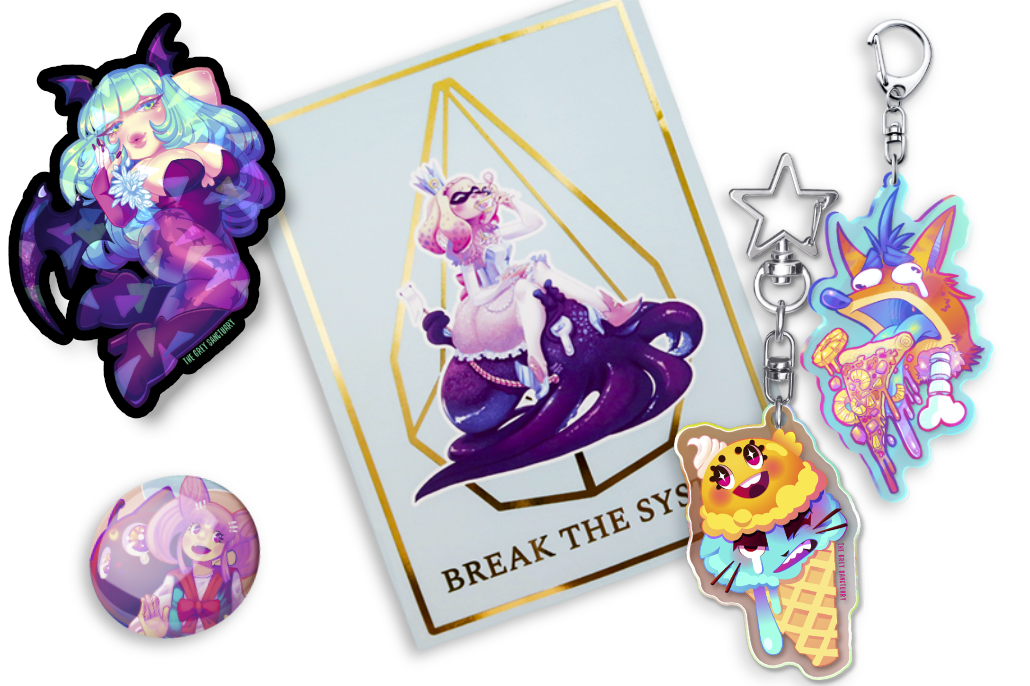

Little Cathedral Blog
What Is Like Working In Video Games Industries
Video game industries are way more complex, but an open world compared to animation, that’s because it has user experience and interactive design. It has so many roles and sometimes certain roles or terms are interchangeable (for the wrong reasons, creating confusion or new “valid” terms). Unfortunately, like any other field and cycle, it’s an unstable and unpredictable field to navigate. It is slow, and probably detrimental, but not impossible to achieve (unless luck is not on your side, the right time and people).
My Navigation
It took me 3 years to finally land my first official job at a video game studio in the UK as a freelancer. I was able to complete a series of documentation of all the projects I worked on and polish my skills with constant learning and feedback. And because of all my documentation and presentation in the interview, I was a priority for them to solve their problem. They didn’t even question the rate I asked for my services, they eagerly jumped on board. Luckily, my portfolio sealed the deal, and wasn’t asked for an art test.
There could be a possibility that an art test is required if you are job-hunting. It seems that on rare occasions they can accept your integration without one. Now, if a company or studio seeks for your services, it would be nonsense if they also ask you for an art test. Not a fan of unpaid test…
My first indie collaboration was awful. It was a 90-day prototype that needed concept art for a pitch to be delivered to some investors with no payment. The Director used to micromanage everything in the art department and people left constantly. I didn’t even last a week due to faulty equipment and power grid failure, yet he just didn’t have consideration (I did warn him before). Eventually, I left because I didn’t like being controlled and rushed for everything. The last 2 people left (in the art department), and he was alone, I don’t have a clue if he managed to complete the pitch.
The same happened to another indie group I joined, mismanagement and ridiculous demands from the Director who lacked accountability and professionalism. In the end, the team collapsed and important people (leadership roles) left eventually, including me. They begged for my reintegration, but it was too late, my mental health and life changed drastically while working in a stressful environment.
A healthy environment, supportive groups, and fair tasks should be the norm to keep any studio operational. People don’t quit just because they want, they quit primarily because of bad management, abusive workflow and other stuff.
Indie vs. Corporations
Roles & Payments
Working with corporations may be flexible at times, perhaps dedicating to 1 role with a possible fair pay. Contrary to indie, you basically manage several roles with a low payment or nothing due to collaborations. There are some indies with the appropriate funding and have no problem paying fairly. But we all know what we are facing today with this inflation:
- Roles getting replaced by the AI bros.
- Sneaky and advanced scams non-stop.
- Ridiculously low payments and free “art tests”.
- The sudden collapse of studios with constant layoffs.
- Our artworks getting trained and fed by generative AI tools in our workplace.
- And apparently, AI bros getting paid 3x than a concept artist by greedy BiG DaDdY CoRpORaTiOnS.
Anyone vs. No Time To Train
One of the biggest downsides of working with corporations is that they sometimes seek experienced people (mid-senior), and on some occasions with a specific requirement like “shipped at least 1-2 AAA games”. They could even ask for ridiculous requirements and specific tasks for an absurd role. In my experience, indies are more welcoming and provide the necessary expertise, growth, and experience for one to evolve. There are rare times that indies may ask for experienced people, I did this once when we were under pre-production with a deadline as an Art Director. Also during recruitment, I was against asking for an art test.
Anywhere vs. Relocations
It seems that remote (working from home) is no longer a desired requirement by many studios due to government involvement, regulations, studies against it due to “poor performance”, etc. I also see many people complaining about commuting once more due to no longer having the beneficial aspects of working remotely. It’s a blessing working from your location without relocating during uncertain times when layoffs, and studios closing are unpredictable.
Creatives Problems Nowadays
I think the problem stems from people thinking that a portfolio is sufficient to navigate in the freelance world. And the truth is, you’ll need to learn how to do business, be disciplined with your ethics, and learn to protect your rights. There is no point in being successful if you work with anything and anyone, especially accepting any payments, not learning different negotiation tactics, and not limiting your services, products, and/or deliverables. I charge based on my expertise, my needs, and my value, so most of the time I get rejected. But I’m able to target the clients who are willing to pay what I’m asking for without questioning anything.
I’m only able to move forward with gigs and studios that accept my services independently of where I am from due to their flexibility and lack of discrimination of my location (trust me, I’ve been rejected so many times for being from Puerto Rico, and asked to relocate instead).
Things To Take In Consideration
- Whenever searching for remote work as a freelancer, always check for the term “anywhere, freelance, or contract”. Many fake/dishonest jobs use the word remote to deviate from the true intentions and requirements of the job description.
- Working for free should be optional and intentional; whether it’s to gain expertise, passion, network, or recognition. I collaborated on 2 indie games due to passion and expertise. With time, I gained a network that provides me with support and gigs.
- Just because it’s a collaborative passion project doesn’t mean you have to suffer with an extreme workload and receive little to no pay.
- Searching for opportunities and job hunting should be considered a full-time job and mentally exhausting, be prepared.
- Think twice before relocating, the industry is unstable and with a blink of an eye, the studio could create massive layoffs and even close entirely.
- Charge what you are worth based on evaluation and research. You’ll be ghosted for asking a “ridiculous price” or pricing so low that the studio will second guess if you are capable of your job.
- You need to learn psychology and marketing when negotiating with individuals to increase your chances for a successful negotiation.
- Please research the type of work or role you desire, and the payments depending on location, money conversion, and be updated with the latest trends.
- Build and take good care of a network with colleagues and friends who are trustworthy, reliable, and confident. The moment you fuck up, don’t be surprised when the people turn their back on you.
- Be on the lookout for specific keywords or tactics used in job scams, and always have discussions with your network to avoid these parasites.
- Familiarize yourself with how contracts work and the NDAs you managed to collect. I keep them for future reference, besides financial purposes.
- When in the middle of negotiation with a studio don’t throw a number (rate) when asked, simply say you’ll get back to them with a quotation after analyzing the required services.
- Nothing is guaranteed, collect as many gigs as possible but responsibly so you don’t suffer from burnout. Have many outlets for income, including as an entrepreneur.
- I would advise against providing your phone number in the early stages of job hunting. I received so many scam calls nonstop, plus my phone number was leaked by a company on LinkedIn trying to sell me the services I didn’t ask for.
- Whenever writing DMs to potential studios, provide your professional email, CV (unless they say not to), and a link to a portfolio. This is because I no longer have my email visible on the web due to constant unwanted cold emails, scams, and lazy people with no true intentions of buying my services.
- Be firm and assertive when asking for payment, listen carefully to the client or studio, and determine the best way to charge: flat rate, per hour, or based on value.
- If you see someone recruiting in a post or website, don’t waste time; fill out the form or DM them. The more you wait, the less chances you’ll have. Recruiters get overwhelmed and close the request process within days.
- If you receive international payments using PayPal, please use the PayPal conversion money tool. It’s most accurate compared to any tool online.
- I suggested trying other platforms for international payments and saving a lot of money from PayPal’s fees as I did previously here.
Market your portfolio as a service with a creative process. Yes, the final result does look pretty, but when you show the full “invisible” process that goes behind the scenes, like challenges faced during production, trial and errors examples and innovate methodologies used, it positions you in a unique territory with problem-solving skills.
In Conclusion
There are many ways to navigate the video game industry, it is not an easy process, it can be slow but rewarding, especially getting involved with indie studios as a push-up. You better do the fuck-ups in the beginning so that later on you can be wiser when contemplating critical decisions, experiment with different jobs and learn new skills to navigate different departments. If you like to see my portfolio, you can click below.
Thank You For Reading!
If you like my work and documentation and wish to see more, please consider contributing to my growth and hard work with more exploration, investment, and website maintenance.














Leave a Reply